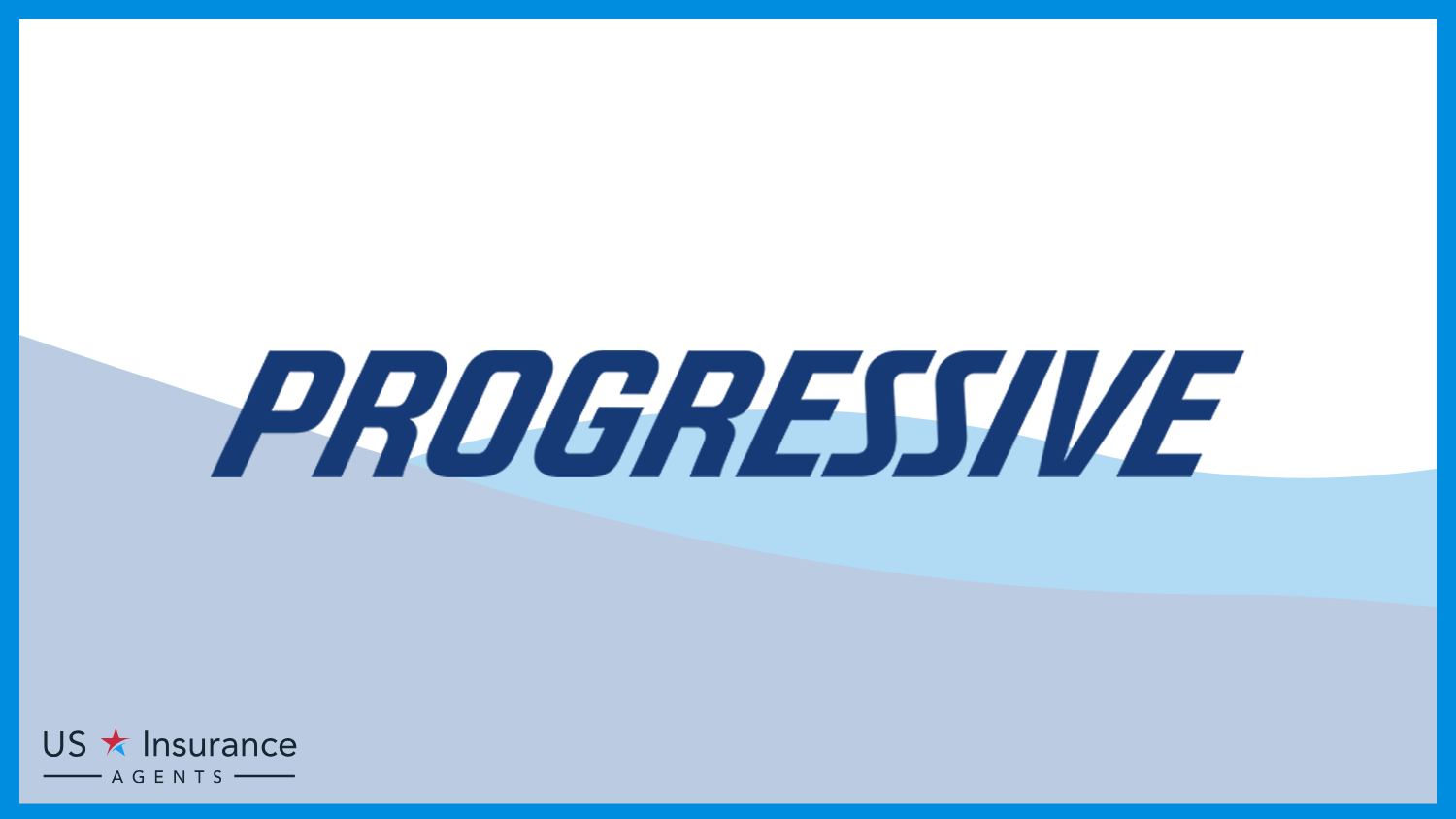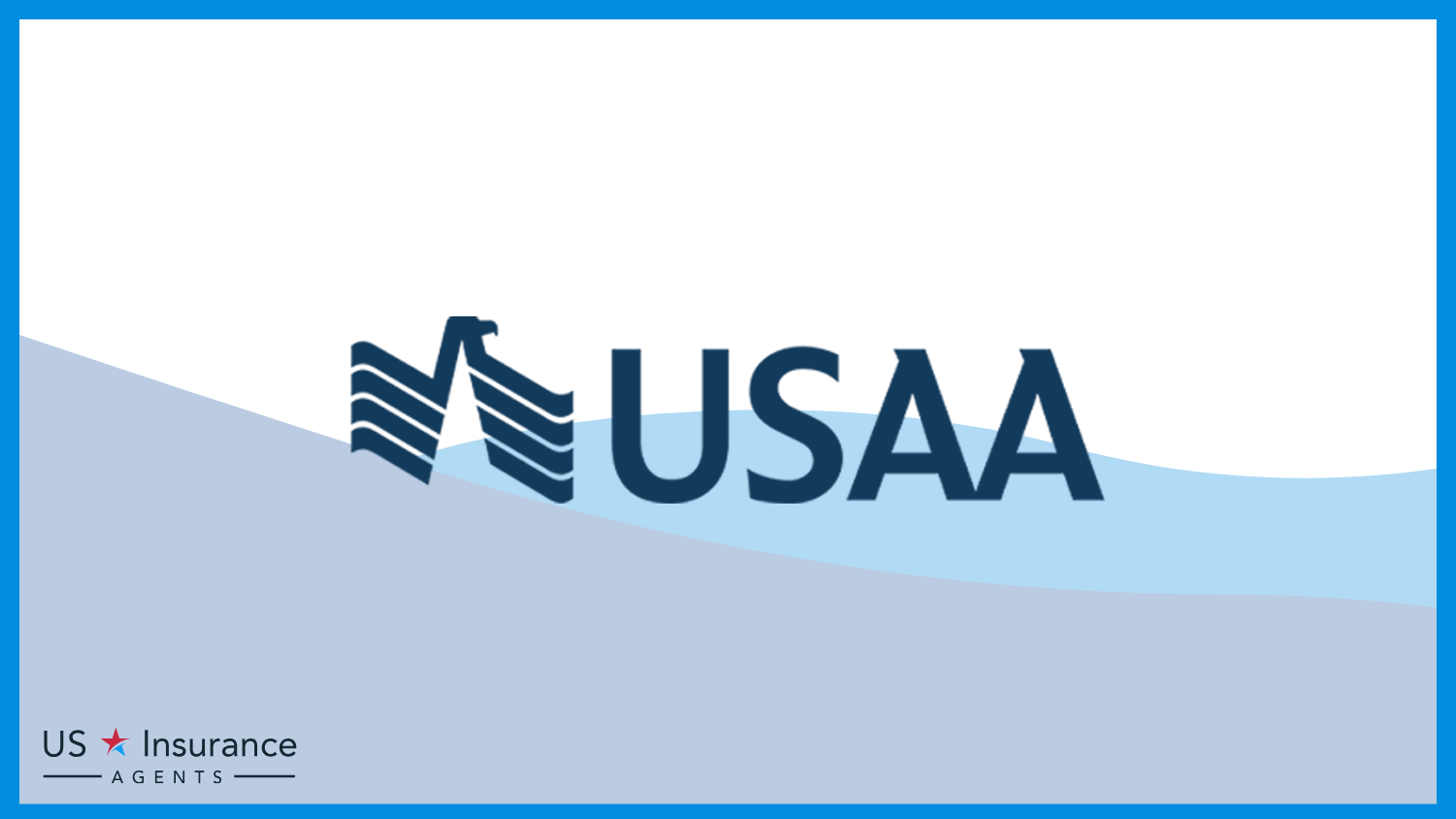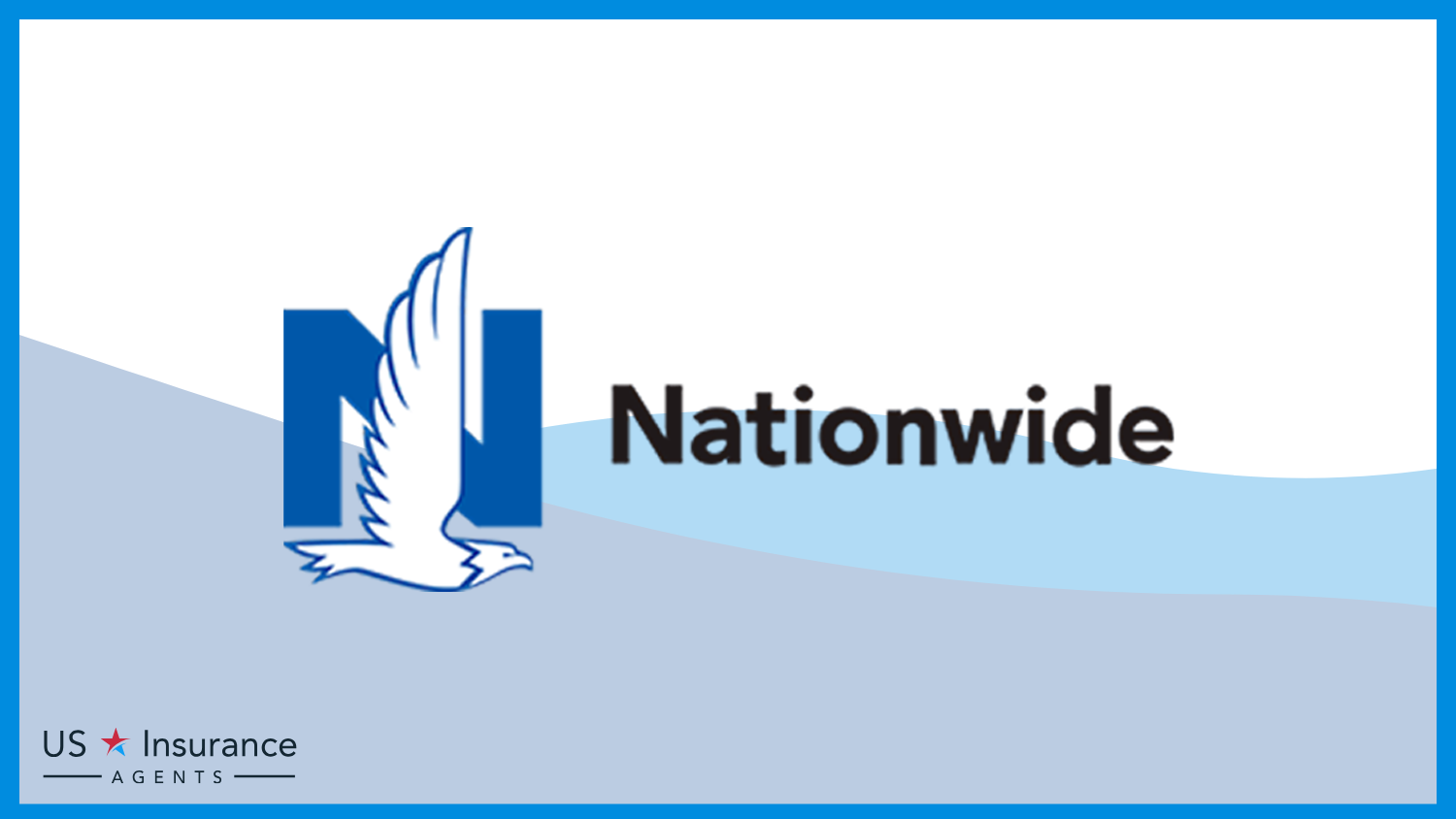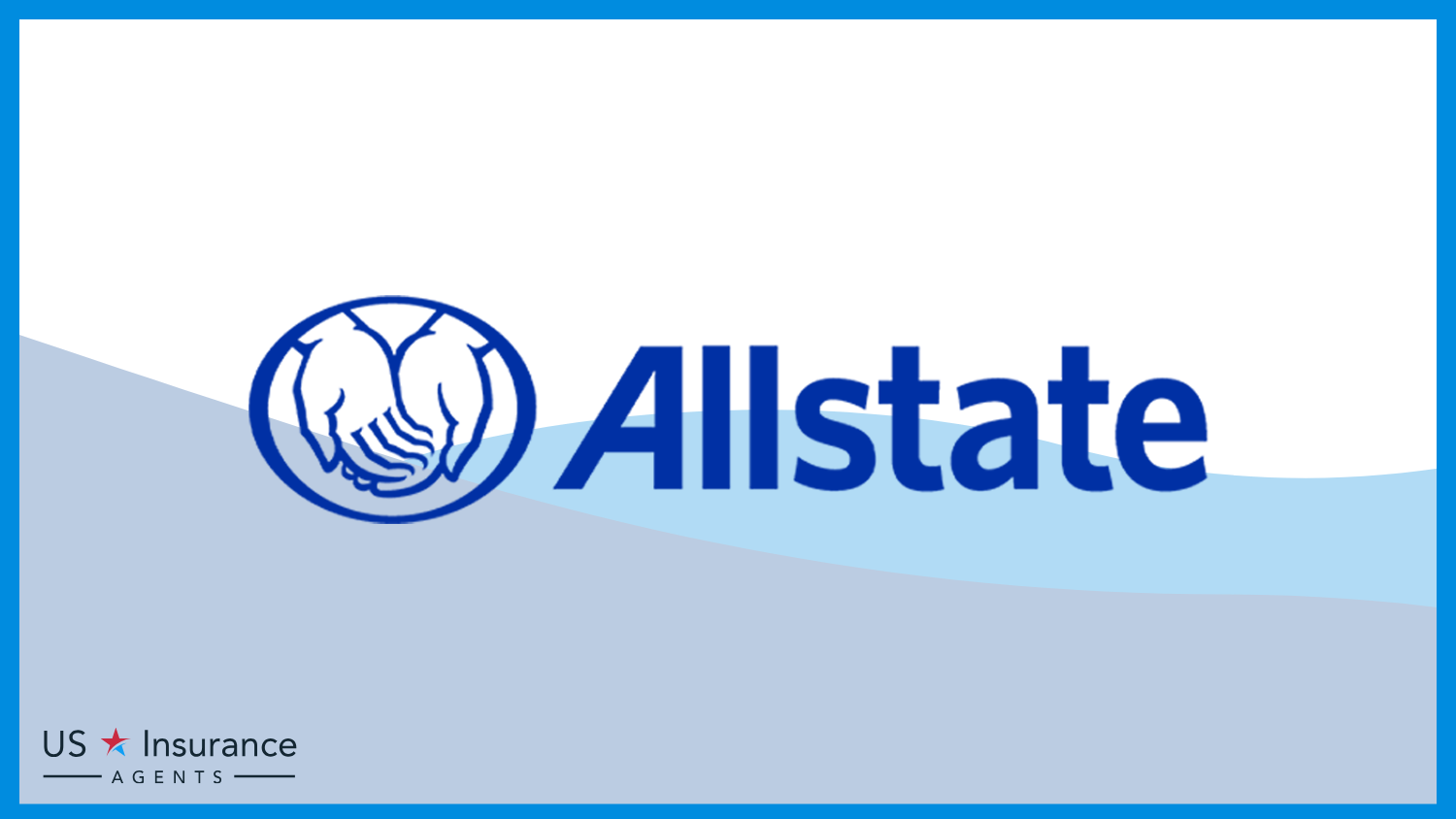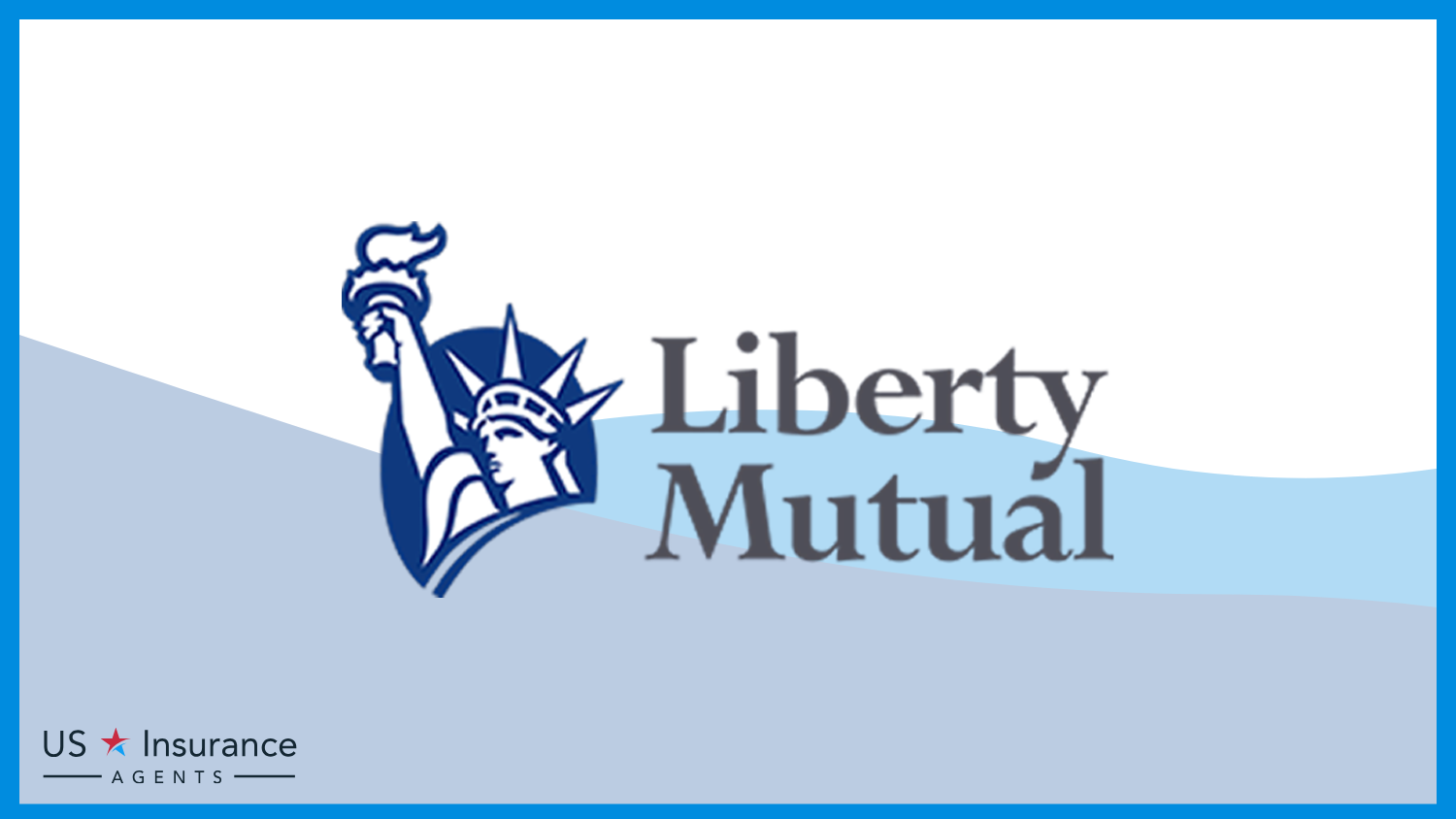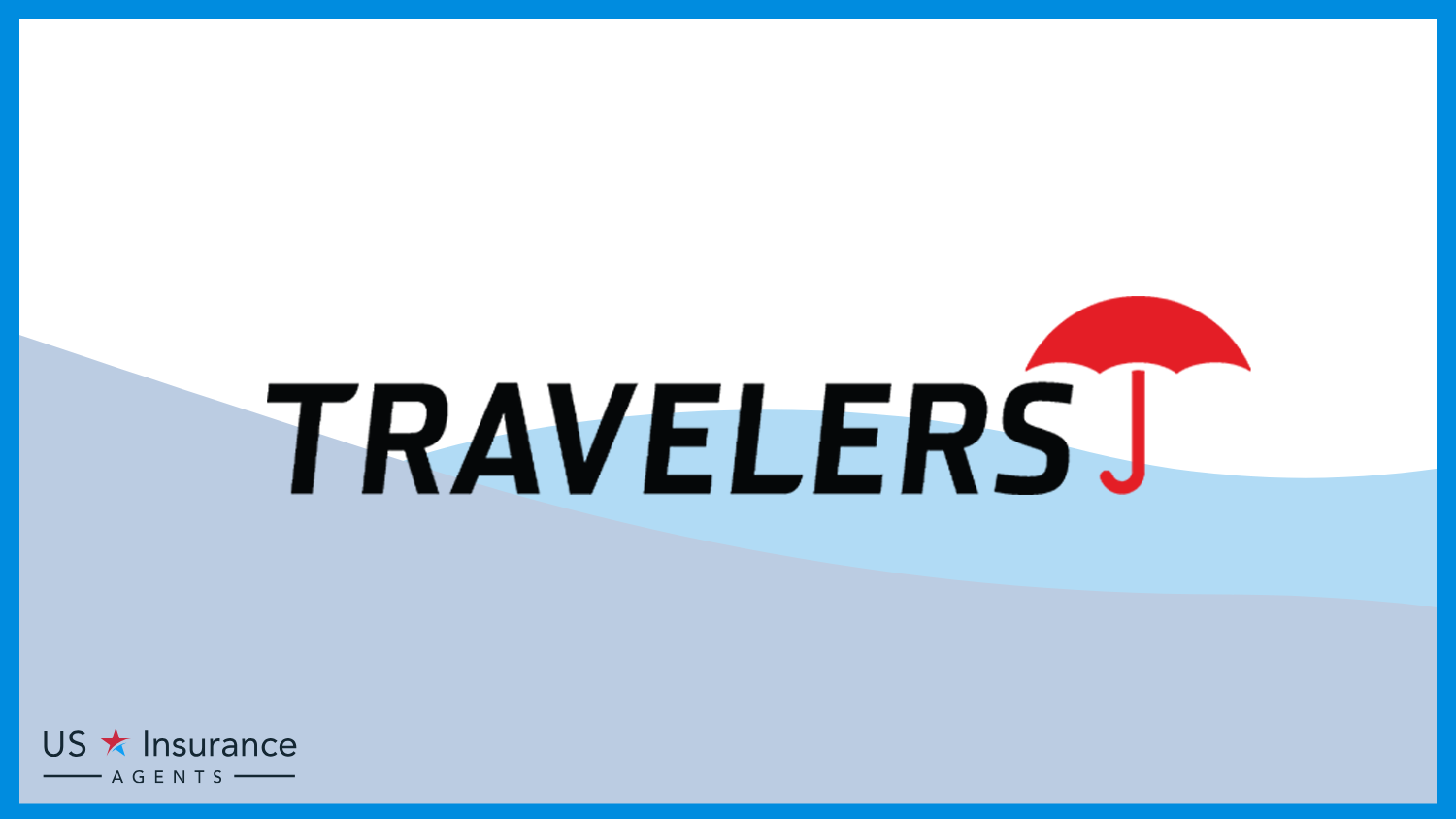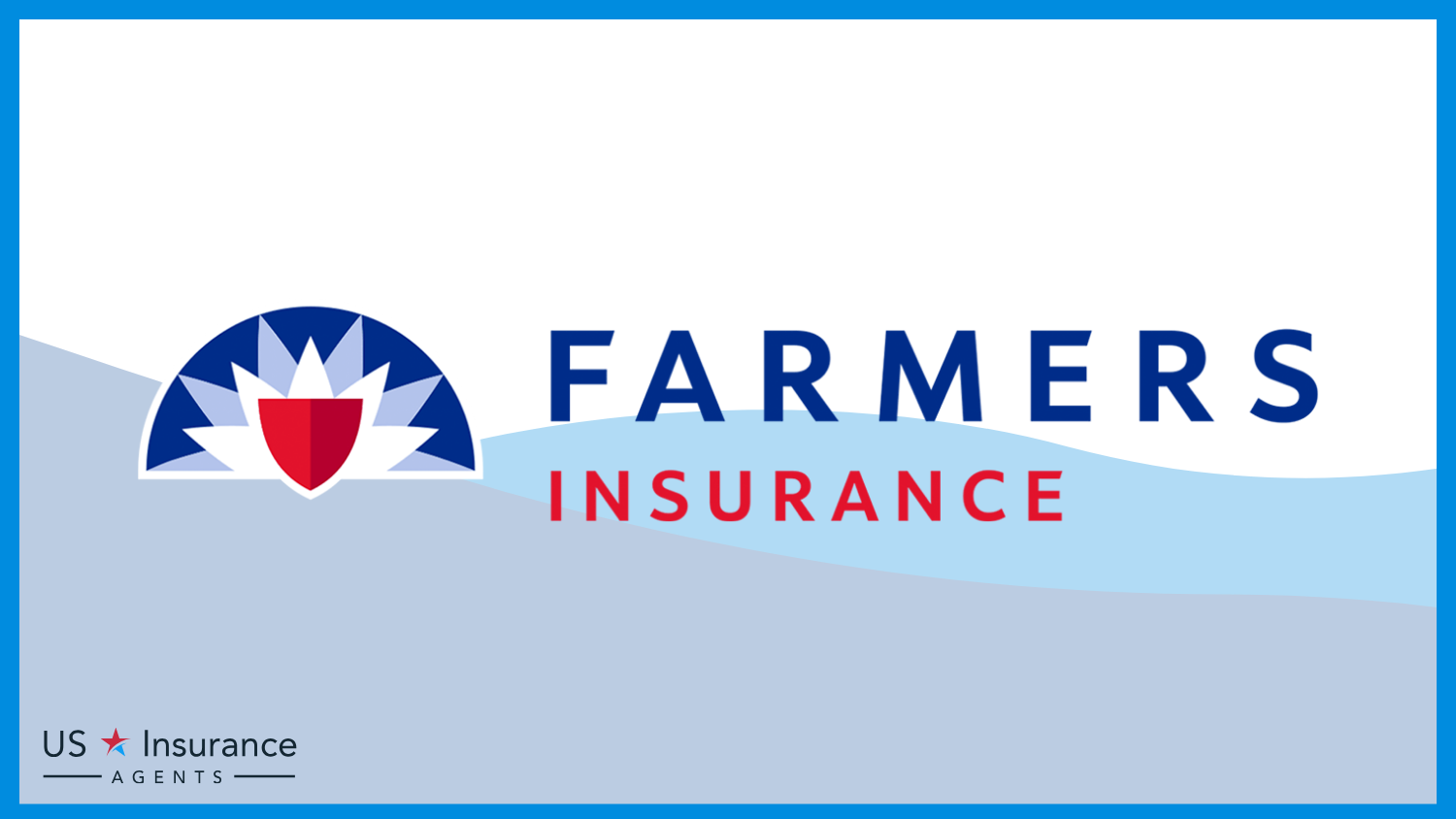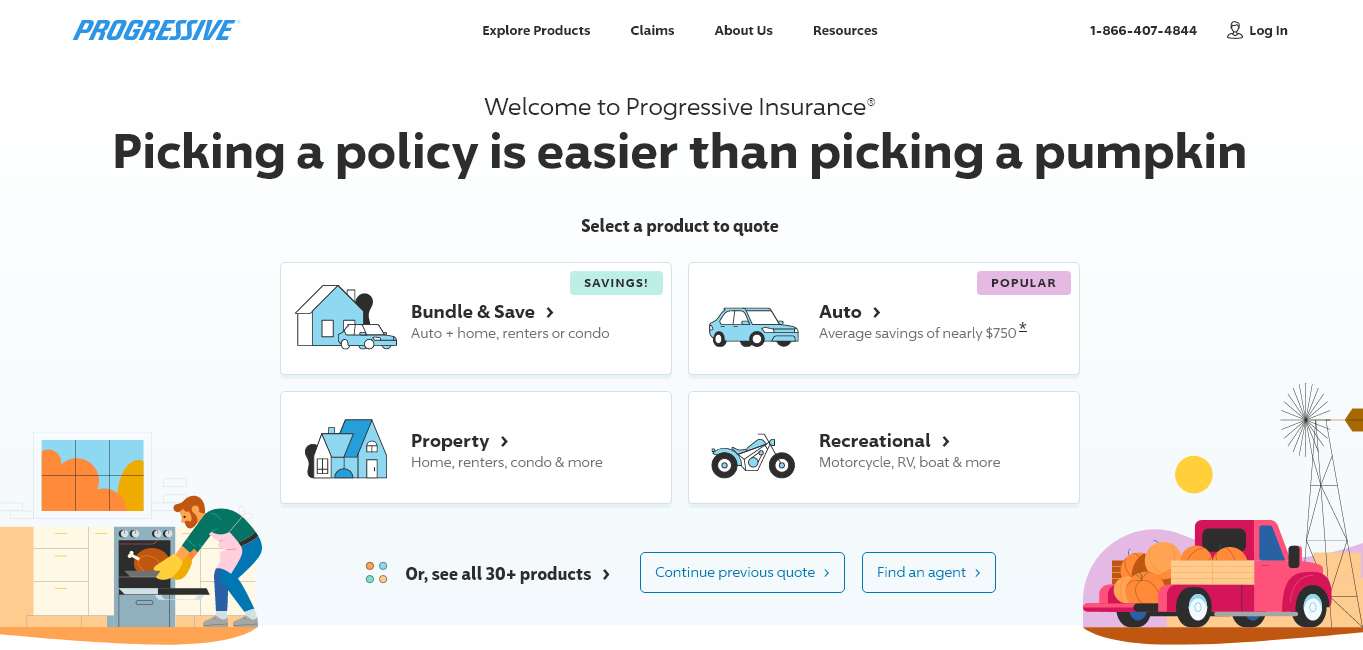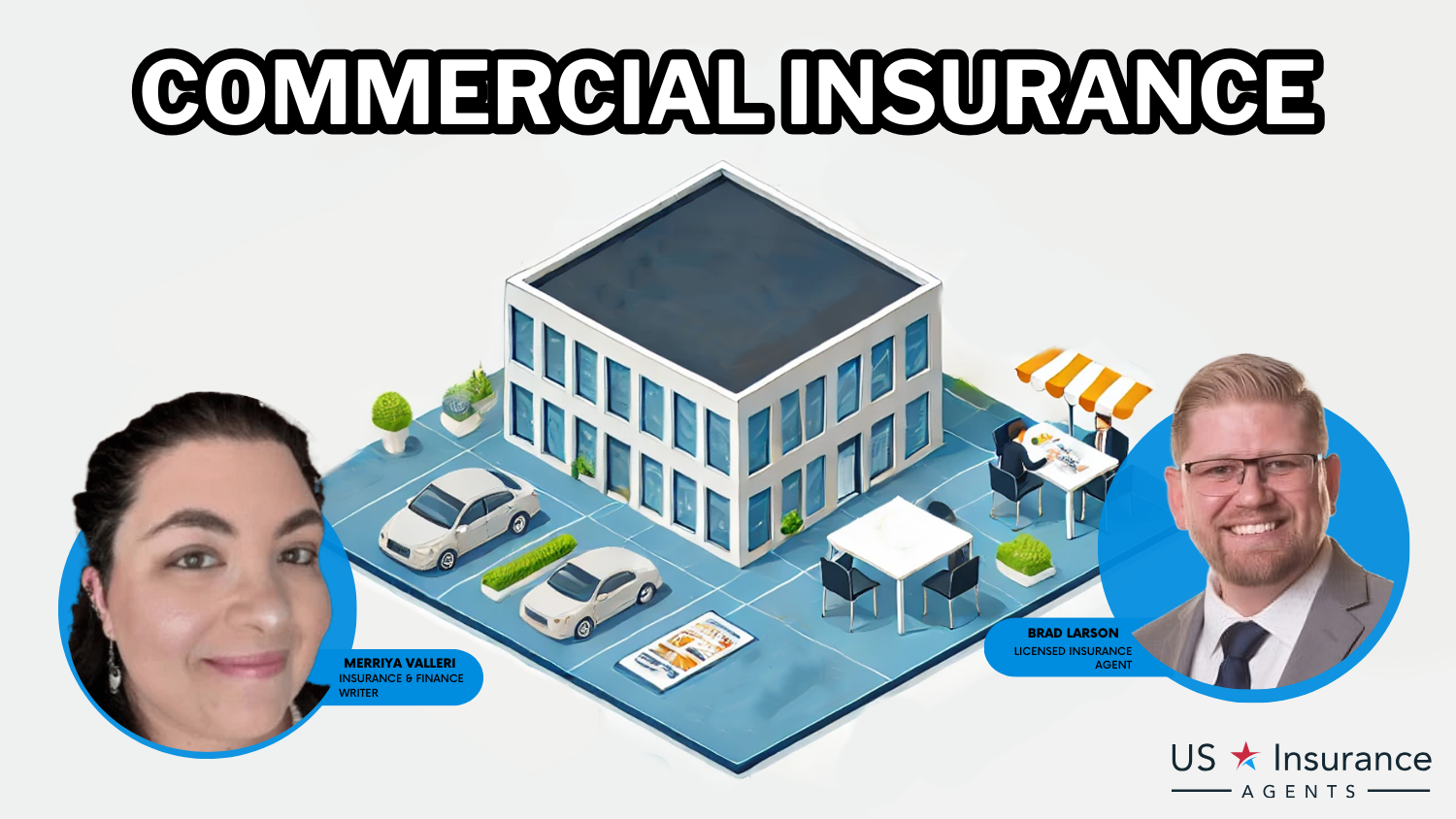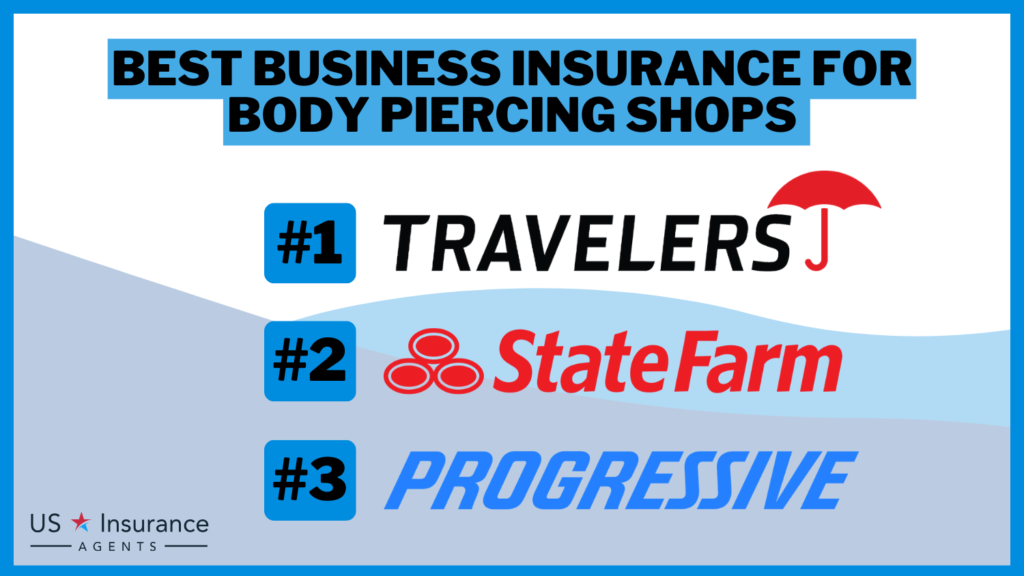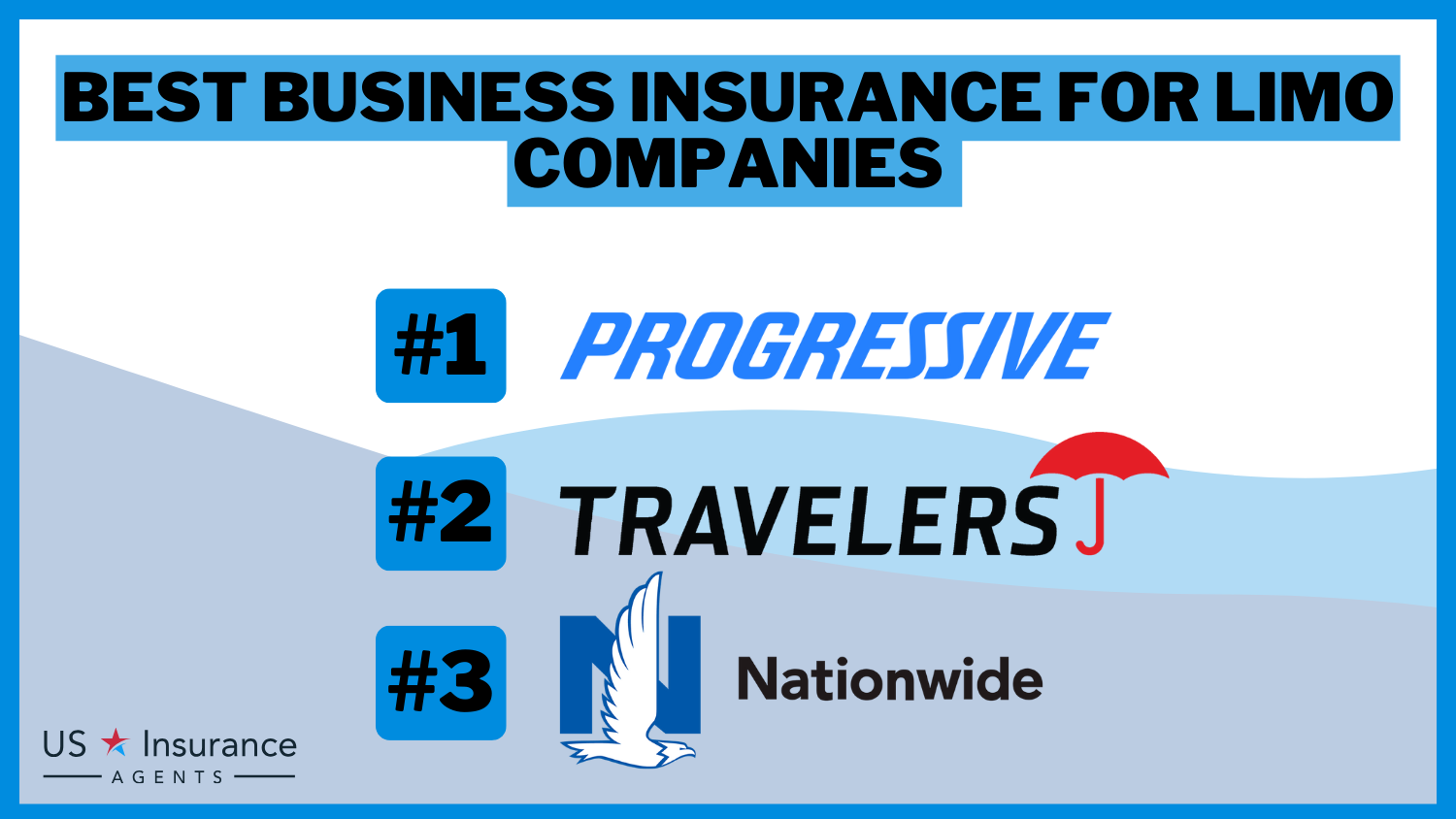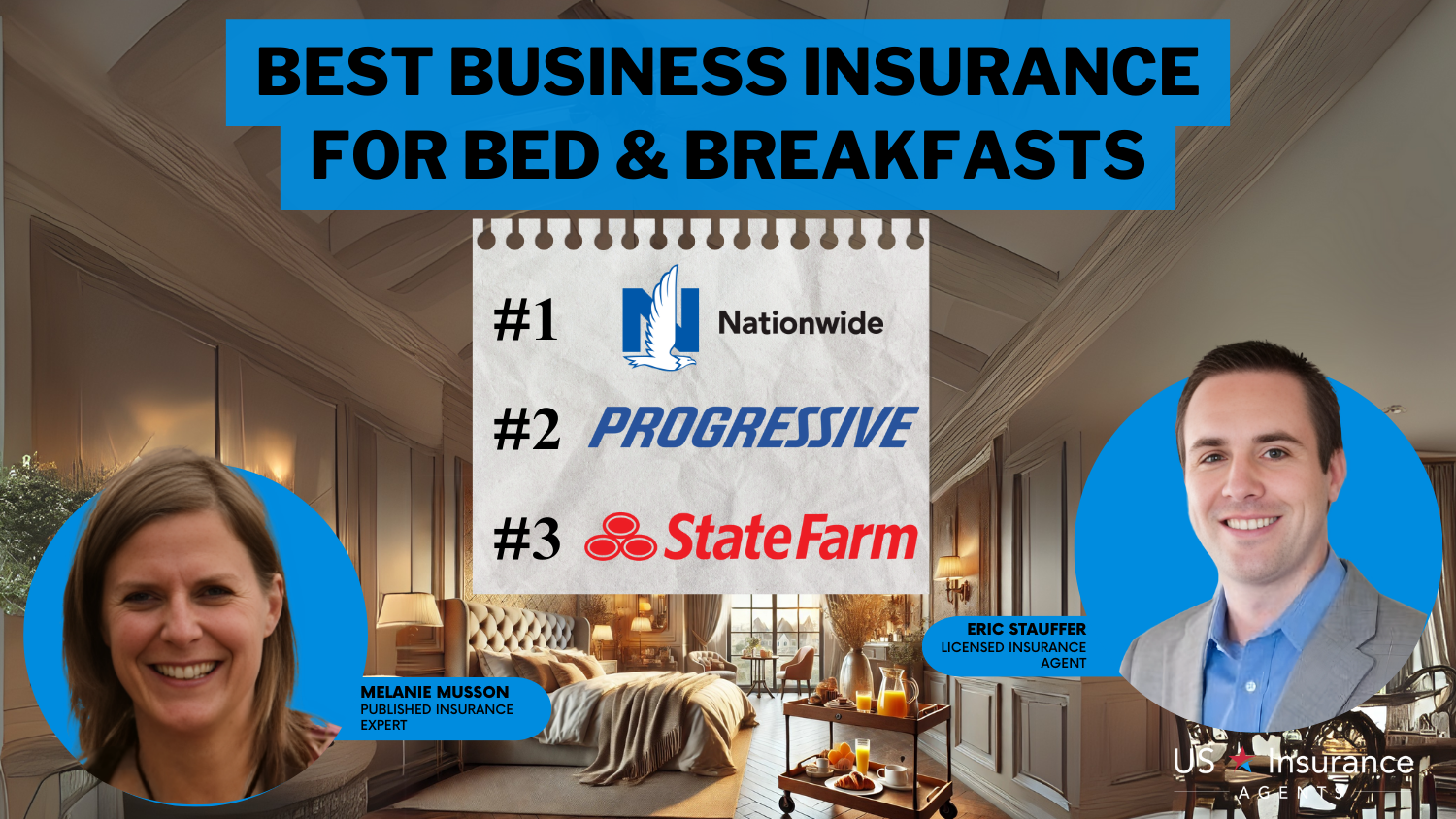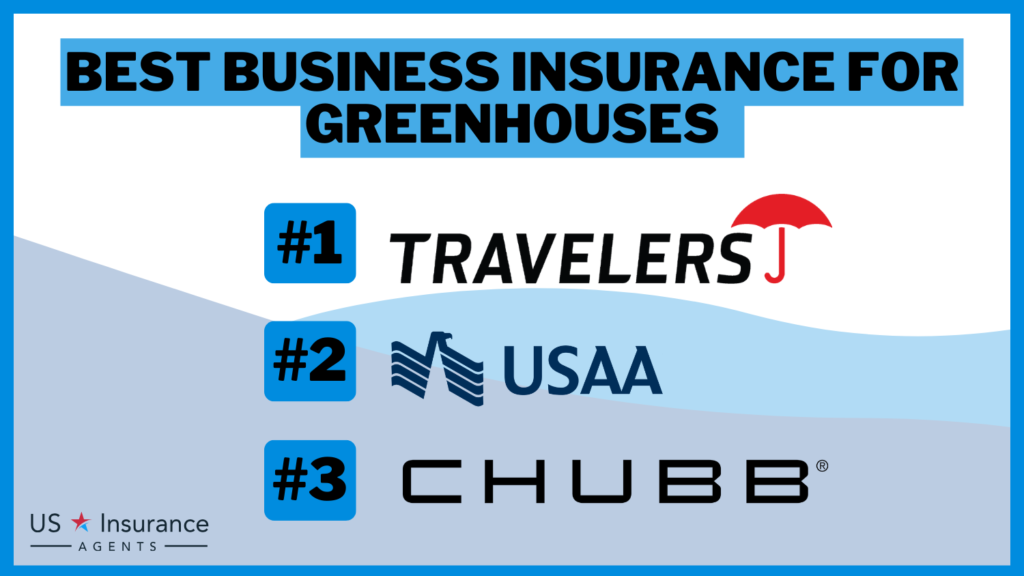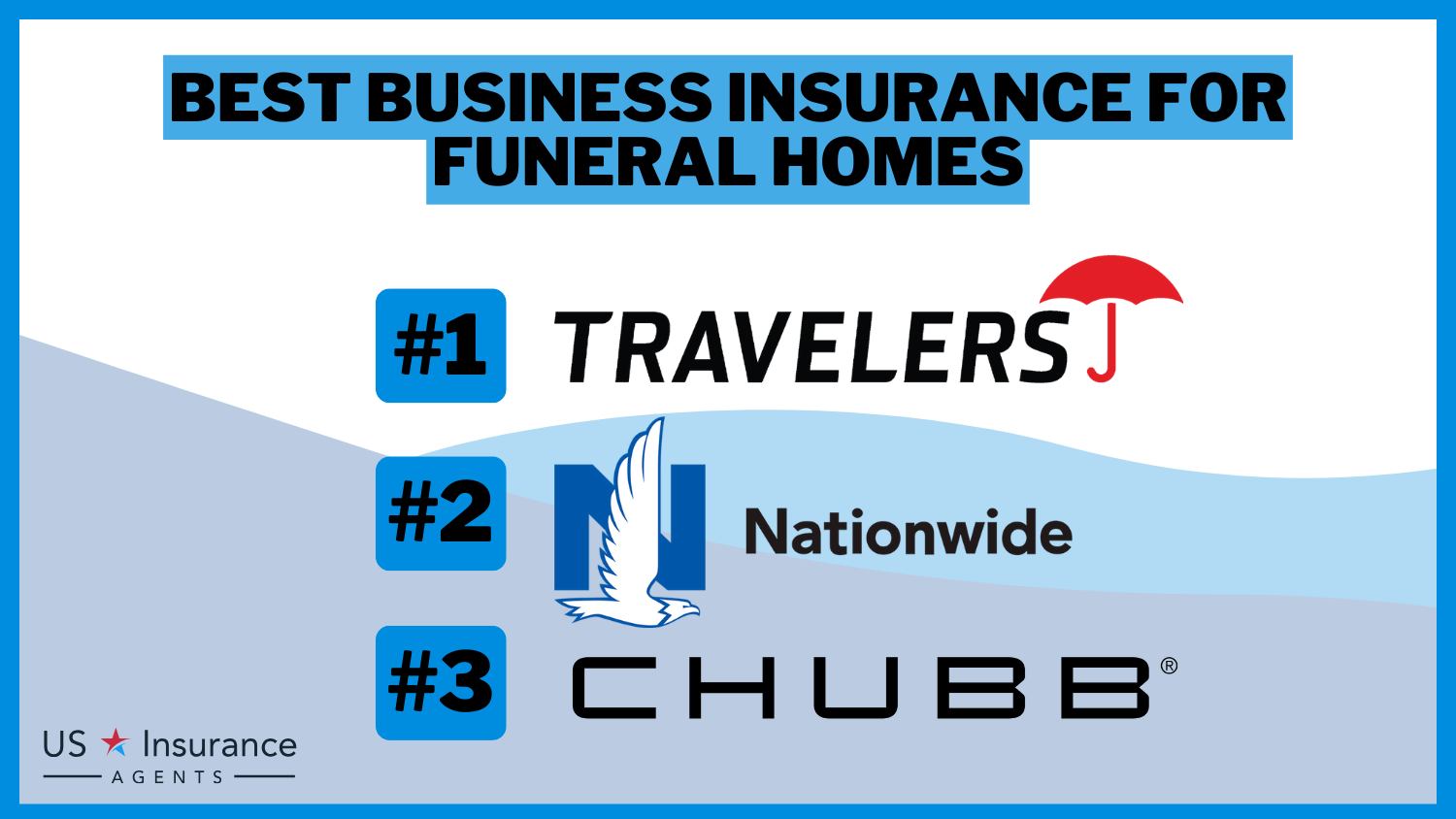Best Business Insurance for Food Trucks in 2026 (Top 10 Companies)
Progressive, USAA, and Nationwide provide the best business insurance for food trucks, offering tailored coverage and discounts of up to 12%. Compare now to ensure comprehensive protection at competitive rates. These providers prioritize the unique needs of food truck owners.
Read more Secured with SHA-256 Encryption






Table of Contents
Table of Contents


Published Author & Insurance Expert
Peyton Leonard is an insurance and finance writer living in Colorado Springs, CO. She is currently obtaining her Bachelor’s in English at Thomas Edison State University. Peyton is the author of “Lyme & Not the Fruit.” She also has experience writing for the business magazine, Productivity Intelligence Institute.
Peyton Leonard


Sr. Director of Content
Sara Routhier, Senior Director of Content, has professional experience as an educator, SEO specialist, and content marketer. She has over 10 years of experience in the insurance industry. As a researcher, data nerd, writer, and editor, she strives to curate educational, enlightening articles that provide you with the must-know facts and best-kept secrets within the overwhelming world of insurance....
Sara Routhier


Licensed Insurance Agent
Jeffrey Manola is an experienced life insurance agent who founded TopQuoteLifeInsurance.com and NoMedicalExamQuotes.com. His mission when creating these sites was to provide online consumers searching for life insurance with the most affordable term life insurance, permanent life insurance, no medical exam life insurance, and burial insurance. Not only does he strive to provide consumers with t...
Jeffrey Manola
Updated February 2025
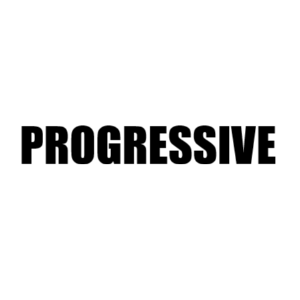 13,285 reviews
13,285 reviewsCompany Facts
Full Coverage for Food Trucks
A.M. Best Rating
Complaint Level
Pros & Cons
 13,285 reviews
13,285 reviews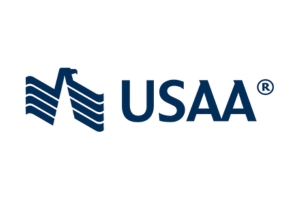 6,590 reviews
6,590 reviewsCompany Facts
Full Coverage for Food Trucks
A.M. Best
Complaint Level
Pros & Cons
 6,590 reviews
6,590 reviews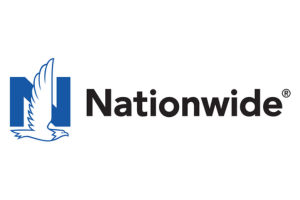 3,071 reviews
3,071 reviewsCompany Facts
Full Coverage for Food Trucks
A.M. Best
Complaint Level
Pros & Cons
 3,071 reviews
3,071 reviewsWelcome to our guide on the best business insurance for food trucks. Explore top providers like Progressive, USAA, and Nationwide. Learn to protect your mobile culinary venture, whether you’re experienced or new to the industry.
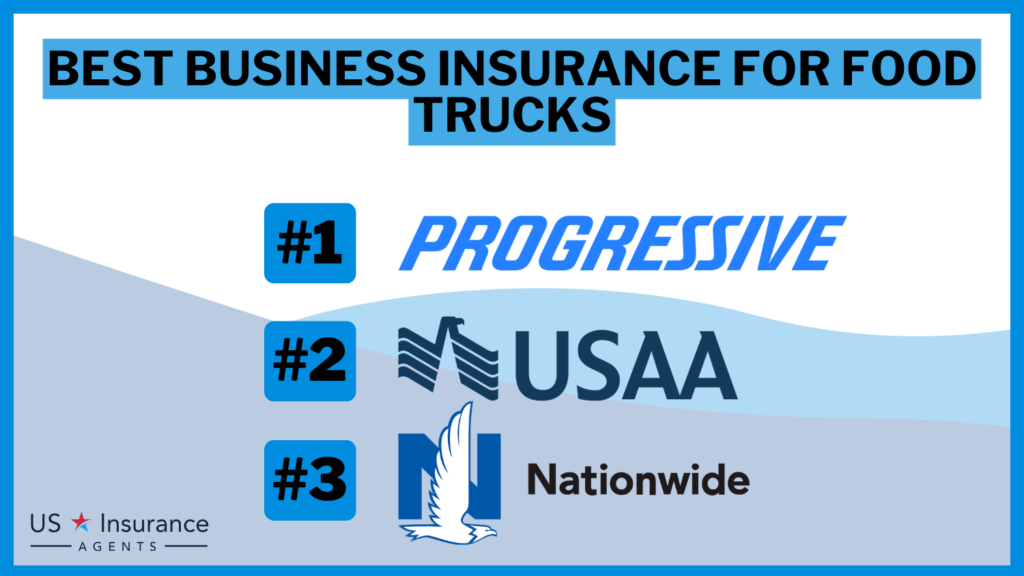
Welcome to our comprehensive guide on Business Insurance for Food Trucks. As a food truck owner, ensuring the protection of your business, assets, and employees is paramount.
Our Top 10 Company Picks: Best Business Insurance for Food Trucks
| Company | Rank | Multi-Policy Discount | Business Experience Discount | Best For | Jump to Pros/Cons |
|---|---|---|---|---|---|
| #1 | 10% | 15% | Customized Coverage | Progressive | |
| #2 | 12% | 8% | Military Savings | USAA | |
 | #3 | 10% | 8% | Industry Experience | Nationwide |
| #4 | 10% | 5% | Bundling Policies | State Farm | |
| #5 | 8% | 10% | Responsible Payer | Allstate | |
 | #6 | 12% | 7% | BOP Coverage | The Hartford |
 | #7 | 10% | 6% | Bundle Savings | Liberty Mutual |
| #8 | 10% | 7% | Tailored Policies | Travelers | |
| #9 | 8% | 5% | Vehicle Protection | Farmers | |
| #10 | 10% | 5% | Startup Protection | Coverwallet |
This guide examines key aspects of food truck commercial insurance: coverage types, costs, and tailored policies for industry risks. Whether starting or improving coverage, we’ve got you covered. Enter your ZIP code to get started on comparing business insurance quotes.
#1 – Progressive: Top Overall Pick
Pros
- Extensive Customization: Progressive stands out for providing highly customizable coverage, allowing food truck owners to tailor policies to their specific needs.
- Generous Multi-Policy Discount: Offering a substantial 10% multi-policy discount, Progressive ensures cost savings for clients bundling different insurance policies.
- Exceptional Business Experience Discount: In our Progressive insurance review & ratings, long-time business owners enjoy a substantial 15% discount, making it an appealing option for those with extensive industry experience.
Cons
- Limited Military Savings: Progressive’s military savings rate of 8% may be considered lower compared to other providers.
- Limited Savings For Bundling Policies: Despite offering bundling options, the 5% discount for bundling policies might be less enticing to some customers.
Free Business Insurance Comparison
Compare Quotes From Top Companies and Save
Secured with SHA-256 Encryption
#2 – USAA: Best for Military Savings
Pros
- Top-Tier Military Savings: USAA takes the lead by providing military personnel with an impressive 12% discount, making it an ideal choice for those who have served or are currently serving in the military.
- Solid Multi-Policy Discount: With a 12% multi-policy discount, USAA ensures customers benefit from cost-effective solutions when bundling their insurance needs.
- Tailored Policies: USAA stands out for tailoring its policies, ensuring food truck owners receive coverage that aligns with their unique business requirements.
Cons
- Limited Business Experience Discount: USAA’s business experience discount of 8% may be considered lower compared to competitors.
- Limited Coverage For Industry Experience: In our USAA insurance review & ratings, although offering customized policies, USAA might provide less specialized coverage for particular industry needs.
#3 – Nationwide: Best for Industry Experience
Pros
- Industry Experience Discount: Nationwide caters to food truck owners with 10% off for those with industry experience.
- Multi-Policy Discount: Nationwide provides a 10% discount when bundling various insurance policies.
- Solid Reputation: Exploring Nationwide insurance review & ratings, Nationwide stands out for its reputation in delivering robust and expansive coverage options.
Cons
- Limited Military Discounts: Nationwide offers a standard 10% discount for military personnel, which may be lower than competitors.
- Potential For Higher Premiums: Nationwide’s premiums may be relatively higher, depending on specific coverage needs.
#4 – State Farm: Best for Bundling Policies
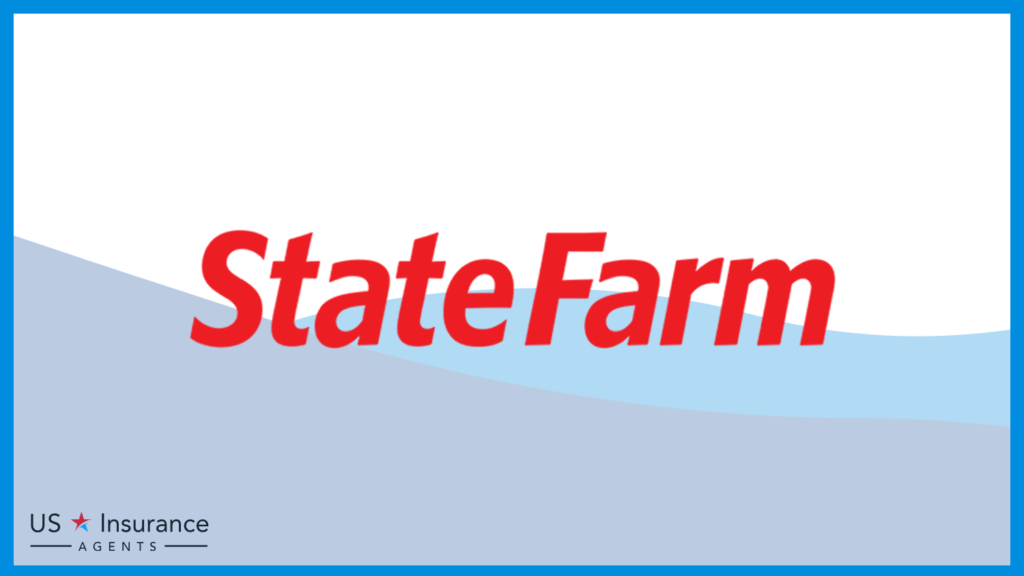
Pros
- Bundling Policies: State Farm encourages savings through a 10% multi-policy discount when customers bundle their insurance needs.
- Customized Coverage: State Farm offers a range of coverage options to meet the unique needs of food truck businesses.
- Reliable Reputation: Delving into our State Farm insurance review & ratings, State Farm is renowned for its stability and commitment to customer service.
Cons
- Limited Business Experience Discount: State Farm provides a 5% discount for business experience, which might be lower compared to some competitors.
- Potentially Higher Premiums: While offering customizable coverage, State Farm’s premiums may be relatively higher for certain businesses.
Free Business Insurance Comparison
Compare Quotes From Top Companies and Save
Secured with SHA-256 Encryption
#5 – Allstate: Best for Responsible Payer
Pros
- Responsible Payer: Within our Allstate insurance review & ratings, Allstate acknowledges responsible payment practices with an 8% discount, fostering financial prudence.
- Multi-policy Discount: Customers can benefit from an 8% discount when bundling multiple insurance policies with Allstate.
- Comprehensive Coverage: Allstate provides a variety of coverage options to ensure comprehensive protection.
Cons
- Limited Industry Experience Discount: Allstate offers a 10% discount for industry experience, which might be lower compared to some competitors.
- Potentially Higher Premiums: Allstate’s premiums may be relatively higher for specific coverage needs.
#6 – The Hartford: Best for BOP Coverage
Pros
- BOP Coverage: The Hartford specializes in Business Owners Policy (BOP) coverage, providing comprehensive protection for food truck businesses.
- Multi-Policy Discount: Customers can enjoy a 12% discount by bundling various insurance policies with The Hartford.
- Industry Expertise: Highlighted in our Hartford insurance review & ratings, The Hartford is renowned for its adeptness in grasping and meeting businesses’ needs.
Cons
- Limited Bundle Savings: While offering BOP coverage, The Hartford provides a 7% discount for bundling, which might be lower compared to some competitors.
- Potential For Higher Premiums: Premium rates with The Hartford may be relatively higher depending on the scope of coverage.
#7 – Liberty Mutual: Best for Bundle Savings
Pros
- Bundle Savings: Liberty Mutual offers a 10% discount for customers who bundle multiple insurance policies, promoting cost-effective coverage.
- Customized Coverage: Food truck owners can benefit from tailored policies to meet their specific needs with Liberty Mutual.
- Reputation For Customer Service: As detailed in our Liberty Mutual review & ratings, Liberty Mutual is esteemed for its responsive and customer-centric service.
Cons
- Limited Business Experience Discount: Liberty Mutual provides a 6% discount for business experience, which may be lower compared to some competitors.
- Potential For Higher Premiums: While offering customization, Liberty Mutual’s premium rates may be relatively higher for certain coverages.
Free Business Insurance Comparison
Compare Quotes From Top Companies and Save
Secured with SHA-256 Encryption
#8 – Travelers: Best for Tailored Policies
Pros
- Tailored Policies: Travelers excels in providing policies that can be customized to meet the specific needs of food truck businesses.
- Multi-Policy Discount: Customers can benefit from a 10% discount when bundling various insurance policies with Travelers.
- Strong Financial Stability: Highlighted in our Travelers insurance review & ratings, Travelers is esteemed for its financial robustness and steadfast stability.
Cons
- Limited Industry Experience Discount: Travelers offers a 7% discount for industry experience, which might be lower compared to some competitors.
- Potentially Higher Premiums: While offering tailored policies, Travelers’ premiums may be relatively higher for specific coverages.
#9 – Farmers Insurance: Best for Vehicle Protection
Pros
- Vehicle Protection: Farmers Insurance focuses on providing coverage to protect food truck owners’ vehicles, ensuring comprehensive protection.
- Multi-Policy Discount: Customers can enjoy an 8% discount by bundling multiple insurance policies with Farmers Insurance.
- Wide Range of Coverage Options: As detailed in our Farmers insurance review & ratings, Farmers Insurance provides an extensive range of coverage options to address diverse business needs.
Cons
- Limited Discount For Business Experience: Farmers Insurance provides a 5% discount for business experience, which may be lower compared to some competitors.
- Potential For Higher Premiums: Premium rates with Farmers Insurance may be relatively higher depending on the scope of coverage.
#10 – Coverwallet: Best for Startup Protection
Pros
- Startup Protection: Coverwallet focuses on offering insurance solutions for startup food truck businesses, mitigating their distinct risks in the realm of business insurance.
- Multi-policy Discount: Customers can benefit from a 10% discount by bundling various insurance policies with Coverwallet.
- Streamlined Application Process: Coverwallet is known for its user-friendly and efficient application process.
Cons
- Limited Industry Experience Discount: Coverwallet offers a 5% discount for industry experience, which may be lower compared to some competitors.
- Potential For Higher Premiums: While catering to startups, Coverwallet’s premium rates may be relatively higher for specific coverages.
Free Business Insurance Comparison
Compare Quotes From Top Companies and Save
Secured with SHA-256 Encryption
Unveiling the Costs of a Business Owner’s Policy for Food Trucks
Commercial Insurance, also known as a business owner’s policy (BOP), combines general liability and property insurance to protect food truck owners from risks. When evaluating BOP costs, consider various factors.
- Location: Geographic area affects BOP costs due to varying risk levels like theft or liability claims.
- Operations: Types of food served and equipment used impact policy expenses.
- Business Property and Equipment: The value of assets, including vehicle and cooking appliances, determines BOP costs.
- Business Interruption Insurance: Crucial for food truck owners, it covers lost income and expenses during operational downtime.
When considering a BOP for your food truck, assess your insurance needs and collaborate with a licensed expert to determine suitable coverage.
Tailor the BOP to your business requirements for ample protection against risks while managing costs effectively.
Understanding Workers’ Compensation Insurance Costs for Food Trucks
Workers’ compensation insurance is crucial for food truck owners, especially those with employees, offering financial security in cases of work-related injuries, illnesses, or accidents. Now, let’s explore the factors impacting the costs of this essential coverage.
- State Regulations: Workers’ compensation insurance costs vary based on the state of operation due to distinct regulations and coverage requirements.
- Business Operations: The intricacy of food preparation, cuisine type, and level of physical labor in your food truck business affect workers’ compensation insurance costs.
- Number of Employees: More employees in your food truck business generally lead to higher workers’ compensation insurance premiums due to increased coverage needs.
- Employee Classifications: Workers’ compensation insurance rates are also influenced by the classification of your employees. Different job roles and responsibilities may have varying levels of risk associated with them.
- Safety Measures and Training: Implementing safety protocols, adhering to food handling guidelines, and providing employee training can lower workers’ compensation insurance costs by minimizing risks and maintaining a safe work environment.
Workers’ compensation insurance is crucial for both legal compliance and ensuring employee well-being and business stability. Given the inherent risks in the food service industry, including burns, cuts, slips, and falls, adequate coverage is paramount.
Food Trucks Business Insurance Monthly Rates by Provider & Coverage Level
| Insurance Company | Minimum Coverage | Full Coverage |
|---|---|---|
| $190 | $380 | |
| $195 | $390 | |
| $200 | $400 | |
 | $195 | $390 |
 | $185 | $370 |
| $180 | $360 | |
| $175 | $350 | |
 | $180 | $360 |
| $185 | $370 | |
| $170 | $340 |
Having adequate workers’ compensation coverage ensures that your employees receive the necessary medical care and wage replacement if they are unable to work due to a work-related incident.
Calculating General Liability Expenses for Food Trucks
General liability insurance is a fundamental coverage option for food truck owners, providing protection against a range of potential risks and liabilities. Let’s take a closer look at the key aspects and benefits of general liability insurance for food trucks:
- Customer Injuries: General liability insurance covers medical expenses, legal fees, and potential settlements or judgments related to customer injuries on your food truck premises.
- Customer Property Damage: Accidents resulting in damage to customers’ property are also covered, saving you from costly out-of-pocket expenses.
- Advertising Injuries: General liability insurance safeguards your food truck business against advertising injuries, including claims of libel, slander, or copyright infringement.
- Legal Defense: If faced with a lawsuit, general liability insurance helps cover legal defense costs, including attorney fees and court expenses.
- Peace of Mind: With general liability insurance, you can focus on providing exceptional food and service while being financially protected against unforeseen incidents.
General liability insurance for food trucks often provides a $1 million policy limit per occurrence, with no deductible, ensuring comprehensive coverage without upfront expenses.
Food truck owners can secure comprehensive protection at a discounted rate by bundling general liability insurance with commercial property insurance through a business owner’s policy (BOP). This ensures safeguarding your food truck, business property, and operations against various risks.
Free Business Insurance Comparison
Compare Quotes From Top Companies and Save
Secured with SHA-256 Encryption
Analyzing Commercial Auto Costs for Food Trucks
Reliable transportation is essential for food truck operations, but driving comes with inherent risks. Commercial auto insurance offers vital coverage and financial protection for food truck owners on the road.
Here are some key factors to consider regarding the costs and coverage of commercial auto insurance for food trucks:
- Policy Premiums: Commercial auto insurance for food trucks costs around $135 per month or $1,620 annually, varying based on factors like location, vehicle value, driving records, and coverage limits.
- Coverage Limits: Evaluate your business needs to determine appropriate coverage limits, specifying the maximum amount the insurer will pay for losses.
- Liability Coverage: Protects against injury or property damage to third parties in accidents, covering medical expenses, property repairs, and legal fees.
- Physical Damage Coverage: Repairs or replaces the food truck due to theft, accidents, weather damage, or vandalism.
- Comprehensive Coverage: Optional protection for non-collision incidents like fire, theft, or natural disasters.
- Uninsured/Underinsured Motorist Coverage: Shields against accidents caused by uninsured or underinsured drivers, covering medical expenses and vehicle repairs.
- Deductibles: Out-of-pocket payment before insurance coverage applies, influencing policy premiums and aligning with budget and risk tolerance.
- Additional Factors: Premiums may be affected by driver records, vehicle age, distance traveled, and specialized equipment modifications.
Securing commercial auto insurance shields your food truck business from financial setbacks arising from accidents, theft, or liability claims. Partnering with a specialized insurer guarantees tailored coverage aligned with your unique requirements.
Laura Walker Former Licensed Agent
Remember to regularly review your insurance policy and update it as your business evolves or your coverage requirements change. Insurance is a vital investment that offers peace of mind and safeguards the future of your food truck venture.
Case Studies: Highlighting the Importance of Business Insurance for Food Trucks
Explore real-life scenarios where food truck owners faced unexpected challenges and discover how having the right insurance coverage proved indispensable in mitigating risks and ensuring business continuity.
- Case Study #1 – Business Interruption: A food truck fire caused temporary closure, but Business Owner’s Policy (BOP) coverage, including business interruption insurance, mitigated income loss, enabling swift recovery and resumed operations.
- Case Study #2 – Employee Injury: A cook’s burn injury halted work, yet Workers’ Compensation Insurance covered medical expenses and wage replacement, protecting both employee and owner.
- Case Study #3 – Customer Accident: A slip and fall at the food truck resulted in injury, but General Liability Insurance managed medical costs and property damages, shielding the owner from legal implications.
- Case Study #4 – Auto Collision: Insurance for Collision Coverage stepped in to cover repair expenses, medical bills, and legal fees following a food truck collision, safeguarding continued business operation despite damages and a lawsuit.
These real-life scenarios underscore the vital importance of tailored insurance solutions for food truck businesses. By investing in the right coverage, food truck owners can protect their assets, prioritize the safety of both employees and customers, and fortify their financial stability in the face of unforeseen adversities.
Jeff Root Licensed Life Insurance Agent
With comprehensive insurance, they can confidently navigate the dynamic landscape of the food service industry, knowing they have reliable protection in place, allowing them to focus on delivering exceptional culinary experiences.
Summing Up: Business Insurance for Food Trucks
Operating a food truck involves risks, so comprehensive insurance is essential for protection. A Business Owner’s Policy covers property damage and interruptions, while Workers’ Compensation Insurance handles employee injuries.
General Liability Insurance shields against accidents, and Commercial Auto Insurance covers vehicle damages. Consulting with professionals ensures tailored coverage for specific needs. By understanding the intricacies of insurance, food truck owners can make informed decisions to safeguard their businesses effectively and ensure long-term success.
With premiums and coverage details varying based on factors like location and workforce, personalized guidance from licensed professionals and reputable providers is crucial for adequate protection. Enter your ZIP code into our quote comparison tool to secure cheaper insurance rates for your business.
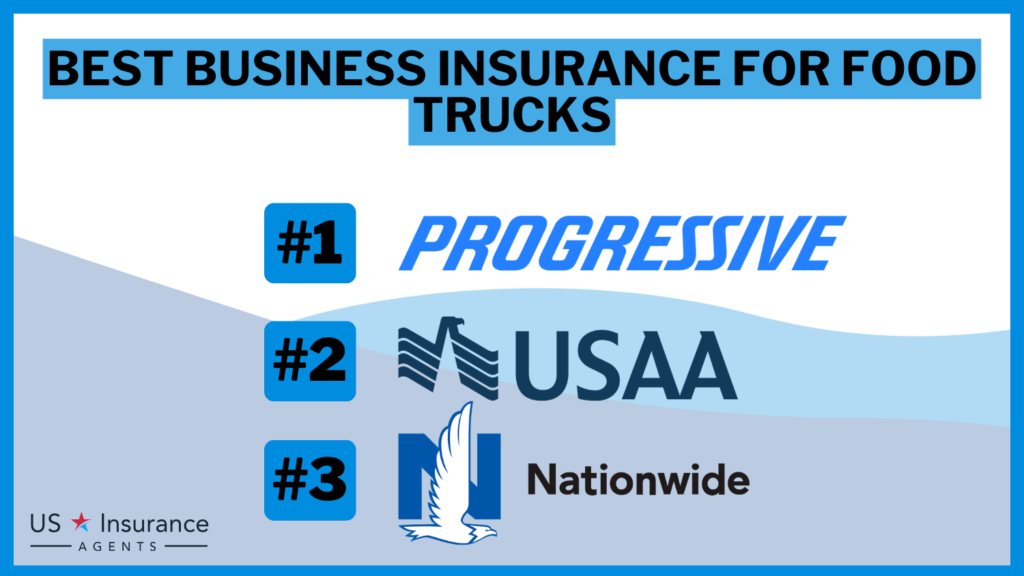
Frequently Asked Questions
Can I operate a food truck without insurance?
While insurance requirements may vary by jurisdiction, it is highly recommended to have insurance coverage for your food truck business. Insurance protects you from potential financial losses due to accidents, property damage, employee injuries, and customer incidents. Operating without insurance leaves you vulnerable to substantial liabilities and legal complications that can jeopardize your business’s future.
Please review our coverage for “Who is eligible to get insurance coverage from USAA?“ for additional details.
Are there any discounts available for food truck insurance?
Insurance providers may offer discounts or special rates based on factors such as the safety features installed in your food truck, your driving record, or bundling multiple policies together. It’s important to discuss your specific needs and circumstances with insurance professionals to explore available discounts and ensure you receive the most cost-effective coverage for your food truck.
Do I need commercial auto insurance if I use my personal vehicle for my food truck business?
Using a personal vehicle for business purposes, such as operating a food truck, typically requires a separate commercial auto insurance policy. Personal auto insurance may not provide adequate coverage for business-related incidents or liabilities. It is essential to inform your insurance provider about your food truck activities to ensure you have the appropriate coverage and protection in place.
Our free quote tool makes it easy to compare affordable coverage options for your business — simply enter your ZIP code to find the best commercial insurance company for you.
Can I adjust my coverage limits as my food truck business grows?
Yes, you can typically adjust your coverage limits as your food truck business expands. It’s crucial to review your insurance policy periodically and communicate any changes in your operations, equipment value, or the number of employees to your insurance provider. By keeping your coverage limits up to date, you can ensure that your insurance adequately reflects the evolving needs and risks of your growing food truck business.
Explore our comprehensive resource, “Best Auto Insurance for Commercial Truck Drivers” to gain further insights.
What should I do in the event of an accident or incident?
In the event of an accident, injury, or property damage, it’s essential to take prompt action. First, prioritize the safety and well-being of everyone involved. If necessary, seek medical attention for injuries.
Next, document the incident by taking photographs, gathering witness information, and reporting the incident to the relevant authorities. Contact your insurance provider as soon as possible to report the incident and initiate the claims process. Your insurance provider will guide you through the necessary steps and help you navigate the situation.
Why choose Progressive for the best insurance for food trucks?
Progressive offers tailored coverage options for food truck owners and enticing discounts, including a 10% multi-policy discount and a 15% business experience discount.
How does USAA cater to food truck owners’ needs for food truck liability coverage?
USAA provides competitive rates and comprehensive coverage options, including food truck liability coverage, with a 12% multi-policy discount and an 8% business experience discount.
Why is Nationwide recommended for liability insurance for food carts?
Nationwide offers tailored insurance solutions with a 10% multi-policy discount and an additional 8% discount for business experience, meeting the specific needs of food truck operations, including comprehensive liability coverage.
Check out our comprehensive guide, “Does Nationwide car insurance cover damage caused by a manufacturer defect?” for additional information.
What factors influence the monthly cost of food truck insurance in Florida?
The monthly cost varies based on factors like coverage limits, location, vehicle value, and insurer pricing models, ranging from a few hundred to over a thousand dollars.
Which states offer the best rates for truck insurance?
Rates vary based on state regulations, competition among insurers, and local risk factors. States with lower population densities and fewer traffic incidents may offer better rates.
How does bundling policies with State Farm benefit food truck owners?
What advantages does Allstate provide for food truck owners as responsible payers?
What makes The Hartford stand out for business owner’s policy (BOP) coverage?
How does Liberty Mutual help food truck owners save with bundle savings?
What benefits do Travelers provide with their tailored policies for food truck owners?
How does Farmers Insurance protect food truck owners with vehicle protection?
Why is Coverwallet recommended for startup protection for food truck businesses?
How can food truck owners benefit from multi-policy discounts with insurance providers?
What factors should food truck owners consider when selecting insurance coverage?
How can food truck owners save money on insurance premiums?
Get a FREE Quote in Minutes
Insurance rates change constantly — we help you stay ahead by making it easy to compare top options and save.

